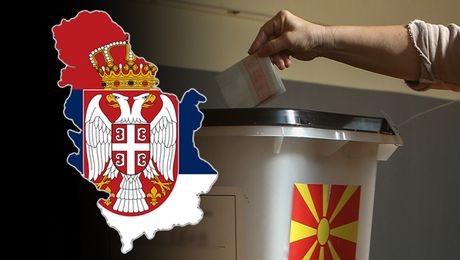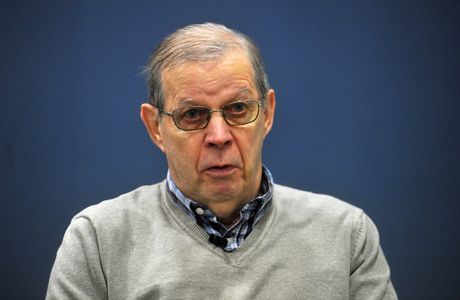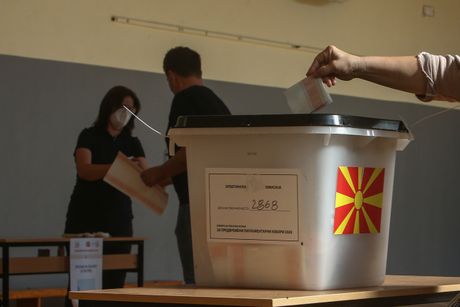How results of parliamentary elections in North Macedonia could affect Serbia

In parliamentary elections in North Macedonia, which took place in a slightly different way than in previous years due to the coronavirus situation, the Social Democratic Alliance of Macedonia (SDSM) led by Zoran Zaev, who has been the prime minister until now, won a minimal advantage over the opposition VMRO-DPMNE party led by Hristijan Mickoski. The election was "spiced up" by the Albanian bloc made up of DUI and the Alliance for Albanians.
Three days of voting, the key election day on Wednesday instead of Sunday, a battle for the post of prime minister that has taken on ethnic colors - in many ways, these parliamentary elections in North Macedonia have been different from previous ones.
The ruling SDSM declared victory in the parliamentary elections on Wednesday night, although, according to incomplete data, the advantage over the opposition VMRO-DPMNE is only about one percent. According to the data of the State Election Commission, after about 80 percent of polling stations were processed, SDSM leads with 36.94 percent, while VMRO-DPMNE received 35.96. In the Albanian bloc of parties, DUI won 10.19 percent and the Alliance for Albanians 7.97 percent of the vote.
After the end of the "battle for the prime minister of North Macedonia" and in anticipation of final results, the question arises as to how the selection of the prime minister of this neighboring country and the foreign policy they will pursue could affect Serbia.
Experts and those with knowledge of the political situation in the Balkans believe that this election should finally put an end to the political turmoil in North Macedonia, which, in addition to this country, has burdened the entire region. Our interlocutor, the director of the International Institute for Security, Dr. Orhan Dragas, agrees with that, explaining that precisely the victory of Zoran Zaev's party will contribute to stability in North Macedonia.

"From that point of view, this outcome suits Serbia, because it, and especially its president Vucic, is constantly advocating for stabilization of the situation in the region, as a precondition for any other form of cooperation. Each Balkan state, individually, is small and cannot realize its goals if it is shaken by political upheaval and instability, and progress is possible only if we create a stable and predictable environment in each of us individually. North Macedonia has opened negotiations with the EU and thus stands on a track from which there is no turning away, Serbia has been on that path for a long time and that is why we share a common strategic direction on which we must cooperate much more than before," he told Telegraf.rs.
He is certain, he says, that years of much stronger cooperation than before are ahead for Serbia and North Macedonia, "because at the helm of both countries are leaders who have verified majority support from their citizens, enjoy an excellent personal relationship, which is very important for our circumstances, that has been confirmed in many encounters so far."
"We don't have open issues with North Macedonia, and the way for even stronger connections and cooperation is open for our two countries," Dragas said.
On the other hand, career diplomat Zoran Milivojevic first explained what would not be a favorable scenario for Serbia, and that is an Albanian becoming the head of the government in Skopje.
"Of course that would not suit us, because then it would be in line with what the Albanian factor stands for here, and that does not suit our interests," he said.

He doesn't see any major deviations in Zaev's reelection, but he points out that it would certainly be less positive if the candidate of the VMRO-DPMNE coalition, Hristijan Mickovski, took his place.
Elections in every way different than others
The battle for the prime minister ended on Wednesday, while the parliamentary elections in North Macedonia differed in many ways from the previous ones. This is above all true in the way the voting took place compared to other regional countries - in North Macedonia, citizen voted for a total of three days.
On Monday, July 13, the right to vote was exercised by those infected with coronavirus, who applied for the opportunity to be visited in isolation, under full protective equipment, by members of polling stations reinforced by medical workers.

On Tuesday, July 14, the elderly, the infirm and prisoners voted, while on Wednesday, July 15, all other citizens were able to exercise their right to vote.
There were 15 lists and parties on the ballots.
(A.T./J.N.)
Video: Glumica Jelena Jovičić otkriva kako je pomogla sebi u teškim momentima i rešila zdravstveni problem
Telegraf.rs zadržava sva prava nad sadržajem. Za preuzimanje sadržaja pogledajte uputstva na stranici Uslovi korišćenja.

